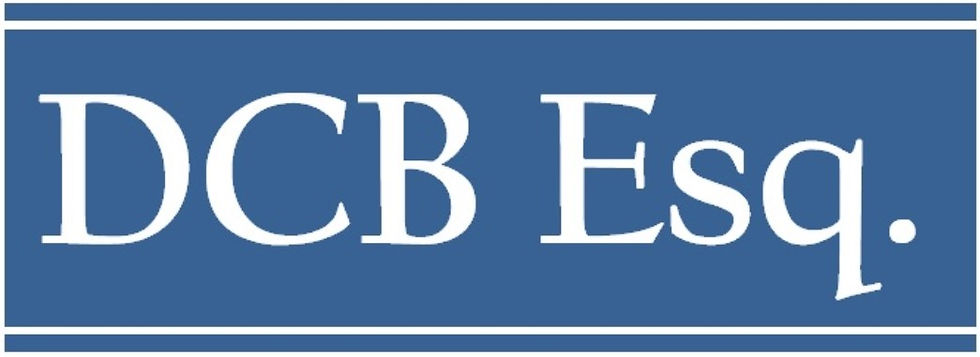IP FAQ - What is a UDRP proceeding and when would I need one?
- David Baker

- Aug 9, 2023
- 2 min read
A UDRP proceeding refers to the Uniform Domain-Name Dispute-Resolution Policy, which is a process established by the Internet Corporation for Assigned Names and Numbers (ICANN) to resolve disputes over domain names. It is designed to provide a faster and more cost-effective alternative to traditional legal proceedings for resolving disputes related to domain name ownership.

When would you need a UDRP proceeding? You might need a UDRP proceeding in the following situations:
Cybersquatting. If someone registers a domain name that is identical or confusingly similar to your trademark or established brand name with the intention of profiting from it or causing confusion among users.
Domain Name Hijacking: When someone gains control of your domain name unlawfully, either through hacking or other illicit means, and you need to reclaim ownership.
Accidental Registration: In some cases, domain names might be inadvertently registered due to typos or misunderstandings, leading to confusion or potential infringement of trademarks or brands.
Bad Faith Registration: If you can prove that the domain name was registered in bad faith and the registrant has no legitimate interest in the name, you may initiate a UDRP proceeding.
Trademark Infringement: If a domain name is being used to infringe upon your trademark rights or is causing confusion among consumers, a UDRP proceeding may be necessary to regain control of the domain.
It's important to note that UDRP proceedings are only applicable to generic top-level domains (gTLDs) like .com, .net, .org, etc., and a few country-code top-level domains (ccTLDs) that have adopted the UDRP policy. Each domain registrar typically has its own specific rules and procedures for handling disputes, so it's essential to review the terms and policies of the registrar where the domain in question is registered.

If you find yourself in a situation that falls under one of the scenarios mentioned above, you may want to consider initiating a UDRP proceeding to resolve the domain name dispute efficiently and cost-effectively. However, it's also advisable to consult with legal professionals specializing in domain name disputes to assess the best course of action for your specific case.
LEGAL DISCLAIMER
IP FAQs are provided by attorney David Baker and the Law Office of David Christopher Baker solely on an informational, educational, and entertainment basis only. They are not intended to be and should not be considered or relied upon as specific legal advice. Likewise, no attorney-client relationship is created by virtue of anyone reading them. Should you have a legal question or should you need specific legal advice, then you should consult a local attorney with proper education, training, and experience int eh type of law for which you require advice and representation.



Comments